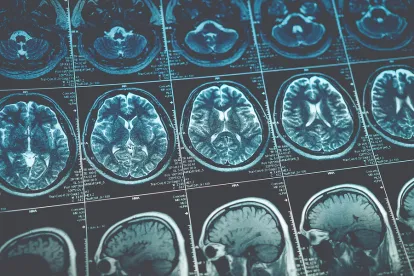In defending pediatric traumatic brain injury cases, defense experts often allege that the pediatric TBI survivor did not sustain any permanent injuries based on the antiquated philosophy that due to neuroplasticity children’s brains heal themselves. This misguided opinion was debunked in a recent study from Israel where researchers sought to evaluate the prevalence of persistent post-concussion syndrome in children 6-60 months after a mild traumatic brain injury. The authors noted the prevalence of persistent post-concussion syndrome among children was not well known.
Two-hundred and five children who sustained a mild traumatic brain injury as defined by the “Mild Traumatic Brain Injury Committee of the American Congress of Rehabilitation Medicine” (1993) were the control group consisting of 205 children who sustained uncomplicated distal radius fractures. “The control group patients were randomly selected by matching age, sex and duration from the insult with the MTBI group.” Children who had pre-existing neurological, neurosurgical or psychiatric problems were excluded from the study. Also, children who were hospitalized for more than 48 hours, suffered multi-trauma injuries, or had a positive CT scan were also excluded.
The researchers found that 25.3% of the children who sustained a mild traumatic brain injury were diagnosed with persistent post-concussion syndrome while only 2.4% in the control group should PPCS-like symptoms. Interestingly, when comparing the prevalence of PPCS 6 – 60 months after the acute injury, there was decline in the prevalence of PPCS, suggesting “those who have continuous symptoms of PPCS more than six months after the acute injury are expected to have a chronic unremitting syndrome.” This study’s findings were similar to a recent study performed by Ewing-Cobbs in their paper “Persistent Post-Concussion Symptoms After Injury.” Pediatrics, 142 (5), (2018). Not surprising, the MTBI patient symptomology was similar to that found in adults, with headaches, problems concentrating, frustration, dizziness, irritability and memory problems being the most common symptoms.
More importantly, researchers found that persistent post-concussion syndrome was underdiagnosed and that “chronic unremitted symptoms are not being categorized as related to the MTBI.” The researchers found,
“In this study, none of the 52 patients who had PPCS were officially characterized as such in their electronic medical records by their pediatric primary care physician or neurologist.” This failure to recognize PPCS were at a higher risk for persistent symptoms due to the delayed diagnosis of concussion.
The research article citation is: Fried, E., Balla, U., Catalogna, M. et al. Persistent post-concussive syndrome in children after mild traumatic brain injury is prevalent and vastly underdiagnosed. Sci Rep 12, 4364 (2022). https://doi.org/10.1038/s41598-022-08302-0



 />i
/>i

